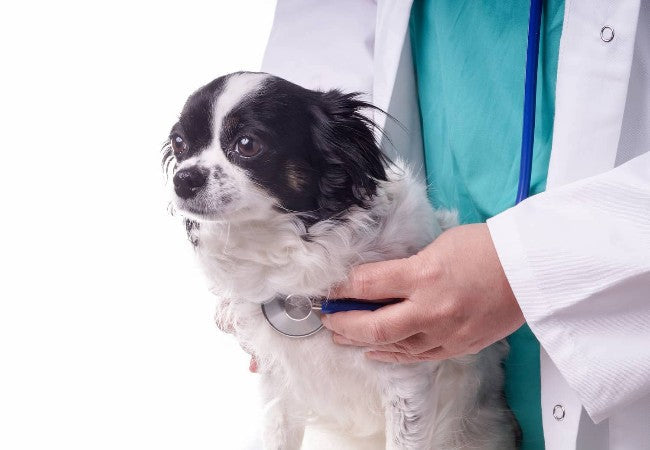Canine Pneumonia in 2025: Vet-Backed Guide 🐶🩺

In this article
Canine Pneumonia in 2025: Vet-Backed Guide 🐶🩺
By Dr. Duncan Houston BVSc
📌 What Is Pneumonia?
Pneumonia is inflammation of the lungs, often with fluid or pus filling the air sacs, leading to coughing and breathing difficulties.
🧬 Types of Pneumonia
- Infectious (viral/bacterial): Often from Bordetella, Streptococcus, or viruses like distemper, influenza—highly contagious.
- Aspiration: Caused by inhaling food, vomit, or fluids—classic cause is regurgitation.
- Fungal: From soil-borne spores like Blastomyces or Histoplasma—less contagious.
- Irritant: Triggered by inhaling smoke, chemicals, or allergens, leading to inflammation.
👀 Signs & Symptoms
- Persistent deep or moist cough
- Labored or rapid breathing, wheezing
- Fever, lethargy, loss of appetite, exercise intolerance
- Nasal discharge and bluish gums in severe cases.
🔍 Diagnosis by Your Vet
- History and physical exam, including auscultation for abnormal lung sounds.
- Chest X-rays and sometimes an ultrasound to assess lung changes.
- Tracheal wash or bronchoalveolar lavage for culture & sensitivity.
- Blood tests to evaluate severity and guide treatment.
🛠️ Treatment & Hospital Care
- Targeted antibiotics for bacteria, antifungals for fungal pneumonia.
- Supportive care: NSAIDs, bronchodilators, expectorants.
- IV fluids, oxygen therapy, and hospitalization in severe cases.
- Nebulization and coupage to clear airways.
🏠 Home Care & Recovery
- Warm, dry environment and low stress.
- Humidified air or steam sessions to help loosen mucus.
- Ensure hydration and offer easy-to-eat, palatable foods.
- Rest and gradual reintroduction of exercise based on vet guidance.
- Complete the antibiotic course and follow-up x-rays to confirm resolution.
🛡️ Preventive Tips
- Vaccinate against Bordetella, influenza, parainfluenza, and adenovirus.
- Minimize exposure to sick dogs and avoid high-risk environments.
- Feed medications slowly and treat reflux to prevent aspiration.
- Avoid smoke, chemicals, and pollutants.
📈 Prognosis
Many dogs recover fully with timely, appropriate care. Untreated or severe cases risking pneumonia complications like abscesses or chronic disease—early treatment is crucial.
📞 When to Call the Vet Immediately
- Difficulty breathing, blue gums, chest expansion issues
- High fever, repeated coughing, refusal to eat or drink
- Persistent lethargy or collapse
If your dog shows any of these symptoms, seek veterinary help right away. Use the Ask A Vet app for fast guidance and peace of mind. 🐾📲






